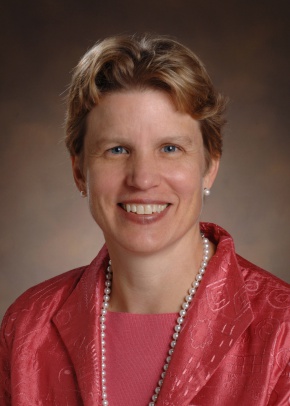BMC Physician Quality Leaders
In July 2016, BMC reorganized the Physician Quality Leaders, funding fewer quality leaders but giving each more responsibility and time to actually get things done. They report to Dr. James Moses, BMC Chief Quality Officer, and address patient safety events as well as promote hospital quality initiatives. They are also tasked specifically to work with residents and help mentor resident projects and ideas!! Faculty and house staff, please reach out to the physician Quality Leader or the Medical Directors in your area of interest. The current physician Quality Leaders are:
- Chris Andry, PhD — Lab and Pathology
- Willie Baker, MD — Emergency Medicine
- Glenn Barest, MD — Radiology
- Lisa Caruso, MD, MPH — Medicine (including Family Medicine, Neurology, Psychiatry, and all subspecialties)
- Elizabeth Hutton, MD—Pediatrics
- Ron Iverson, MD, MPH — Obstetrics/Gynecology
- David McAneny, MD — Surgery (including all subspecialties)
- James Murphy, MD — Critical Care (MICU, SICU, CCU), Medical Director of Inpatient Quality
- Lauren Nentwich, MD — Emergency Medicine
- Susan O’Horo, MD — Interventional Radiology
- Susannah Rowe, MD, MPH — Ophthalmology
Angelique Harris, PhD, New Director of Faculty Development & Diversity
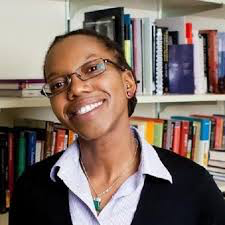
We are delighted to announce that Angelique Harris, PhD will begin as our new Director of Faculty Development and Diversity in the Department of Medicine, and Director of Faculty Development for the BU Medical Campus, starting on Tuesday, November 12th. She joins our faculty, having previously served as an Associate Professor of Sociology with tenure at Marquette University in Milwaukee, WI.
Originally from Mattapan, MA, Dr. Harris received her BA in socialpsychology and her MA in Applied Sociology from the University of Massachusetts, Boston. She later attended the City University of New York (CUNY), where she received her MA in Sociology from Queens College. She received her MPhil, and later her PhD in Sociology, with a focus in Medical Sociology, from the Graduate Center. Dr. Harris has taught as an adjunct professor at Hunter College, City College, and the College of New Rochelle’s South Bronx and Harlem campuses before working as an assistant professor of sociology at California State University, Fullerton and then later, Marquette University. While at Marquette, Dr. Harris developed the Culture, Health and Illness minor, and served as the Director of the Gender and Sexualities Studies Program and the Founding Director of the Center for Gender and Sexualities Studies, where she conducted trainings and workshops to promote faculty development and support equity and inclusion in and out of the classroom. Her research and teaching examine health, wellness, and belonging, as well as social problems and activism within marginalized communities.
We are beyond thrilled that she will be bringing her expertise and experience in faculty development, curriculum design, diversity and inclusion work, and teaching to the Department of Medicine and BU Medical Campus. Please join us in welcoming Dr. Harris!
Geriatrics Patient Tea Party
Our geriatrics patients really know how to have a good time!
The Geriatrics Section hosted their 2nd Patient Tea Party for on November 1st in the Geriatrics clinic on Shapiro 9.
About 20-25 patients, many of them 95-100 years old, and family members mingled with Geriatric physicians, nurses, and support staff. We were very proud to host a gathering with our community where everyone could share stories and celebrate good health . With the help of our team we were able to host a great afternoon filled with happiness, laughter & of course delicious sweets!
David Felson Awarded NIH Grant to Study Osteoarthritis
David Felson, MD, MPH, professor of medicine and epidemiology at Boston University Schools of Medicine and Public Health, was awarded a National Institutes of Health (NIH) P30 Center Grant.
As a member of the section of Rheumatology and the Boston University Core Center for Clinical Research, Dr. Felson's five-year $3.6 million award will provide broad clinical research methods expertise to a large multidisciplinary group of investigators whose research focuses on osteoarthritis and gout with a secondary emphasis on scleroderma, spondyloarthritis, osteoporosis and musculoskeletal pain.
The group, which includes persons with backgrounds in rheumatology, physical therapy, epidemiology, biostatistics and behavioral science, meets weekly to critically review research projects and serves a broad research community with which it actively engages. It has been successful in publishing influential papers on the diseases of focus and in training many of the clinical research faculty in the US and internationally.
| Read More |
2019 Evans Clinician Designees
The Evans Clinician Designation was established in 2017 to recognize and celebrate outstanding clinicians who possess clinical skills, attributes and professionalism that define excellence and to establish a home for such individuals to share experiences and grow their membership.
The following faculty have been designated as Evans Clinicians at the 2019 Evans Research Days:
Gary Balady, MD
Andrea Havasi, MD
Hasmeena Kathuria, MD
Eugene Kissin, MD
Adam Lerner, MD
Christine Phillips, MD
Rachel Simmons, MD
These faculty join previous designees as lifelong members of an expanding group of recognized clinicians who will define the role of the group over time. Membership is meant to be honorific but not exclusive and is displayed on a special name tag.
Evans Research Days- Oct 3 & 4, 2019
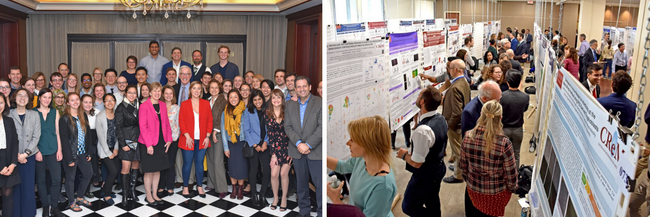
| View Photos |
The 34th Annual Evans Department of Medicine Research Days celebrated and showcased the research activities of the department's faculty, trainees and researchers. This year's event featured the 2nd year of the Poster Blitz, 24 3-minute oral presentations of some of this year's most exciting submissions. The poster session featured 97 presentations, a record high for the event, and included digital poster displays in the newly remodeled entry lounge to the Hiebert Ball Room.
The Gala reception celebrated trainee winners of the Oral Presentations and Poster Session, and honored faculty recipients of the department's annual awards. This year's event saw the inaugural ARC Leadership Award presented by the Evans Center for Interdisciplinary Biomedical research and the inaugural David Aaron Freed award in memory of Aaron's legacy of compassion and excellence.
Thank you to all who helped make this year's event so special!
Award Winners
| Evans Center IBR Research Collaborator of the Year Award Rhoda Au, PhD – Anatomy & Neurobiology |
Inaugural ARC Leadership Award Lindsay Farrer, PhD – Biomedical Genetics |
| Clinical Innovation Award Palliative Medicine UnitSandhya D. Rao, MD -Team Lead Henri Lee, MD Perla Macip-Rodriguez, MD Alexandra Dobie, LICSW Jessica Knight, FNP-C, ACHPN Amy L Cann, BS |
Clinical Excellence Award Won M. Lee, MD —Geriatrics |
| Junior Faculty Mentoring Award Shayna Sarosiek MD —Hematology and Medical Oncology Jessica L Fetterman, PhD —Vascular Biology |
Research Mentoring Award Vipul C. Chitalia, MD, PhD –Nephrology |
| Citizenship Award Thomas Ostrander, MD — General Internal Medicine Gustavo Mostoslavsky, MD, PhD— Gastroenterology |
Clinical Quality Improvement Team Award Antibiotic Stewardship TeamTamar F. Barlam MD – Team Lead Karrine Brade PharmD – Co-Lead |
| Excellence in Educational Scholarship Mentoring Catherine A. Rich, MD — General Internal Medicine |
Special Recognition Teaching Award Gopal Yadavalli, MD — Infectious Diseases |
| Inaugural David Aaron Freed Award John Farrell — Biomedical Genetics |
Most Abstract Submissions Center for Regenerative Medicine (CReM) |
| Clinical Oral Presentation 1st Place: Maura Walker 2nd Place: Magdalena Buczek 3rd Place: Simeon Kimmel |
Basic Research Oral Presentation 1st Place: Fatima Rizvi 2nd Place: Jason Nasse 3rd Place: Elissa Everton |
| Clinical Poster Winners 1st Place: Mengjie Yuan 2nd Place: Feven Ataklte 3rd Place: Erika Crable |
Basic Research Poster Winners 1st Place: Kristine Abo 2nd Place: Anukul Shenoy 3rd Place: Ayumu Osaki |
View Full Schedule
Summer 2019 Newsletter
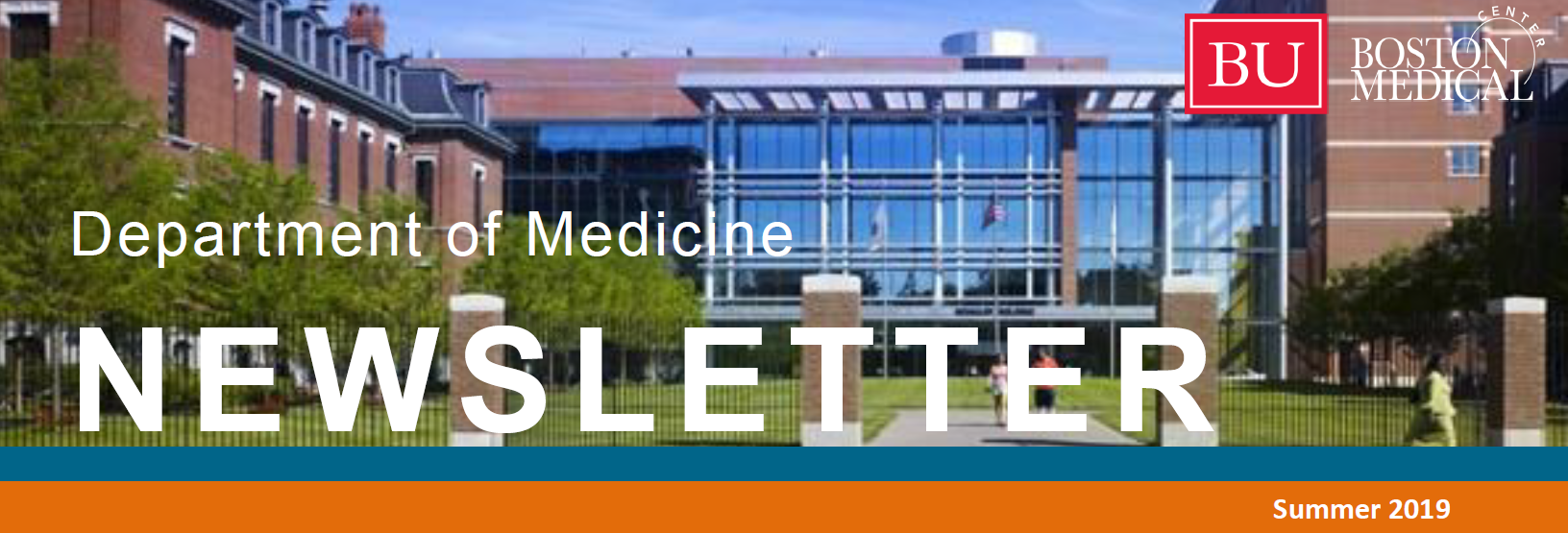
This edition includes
Announcements
Evans Days
Spotlight: BRIM Study
Award Recipients and Recognition
Appointments & Promotions
DOM Happenings
| View Newsletter |
Actively Creating a Culture that Supports and Strengthens Diversity
Chair of Medicine, Dr. David Coleman is featured in BU Today's article "The Key to BU’s Diversity Efforts? Powerful Allies".
As an Ally, Dr. Coleman reflects that there are many things all of us can do to create a culture on campus and in medicine to celebrate diversity. Crystal Williamson, Boston University’s first associate provost for diversity and inclusion, adds “Allies are people who are committed to creating more equitable and inclusive environments, but who may not be the key recipients or foci of that work.”
| Read More |
Spring 2019 Newsletter

This edition includes
Upcoming Events
Announcements
Spotlight: EPIC Leads
Admin Spotlight
Intern Match Results
Award Recipients and Recognition
Appointments & Promotions
Research Corner
DOM Happenings
| View Newsletter |
Framingham Heart Study Awarded $38M NHLBI Contract Renewal
The Framingham Heart Study (FHS), the nation’s longest running cohort study with longitudinal analysis of cardiovascular disease, has received a contract renewal for an additional six years and $38 million dollars from the National Heart, Lung, and Blood Institute (NHLBI).
The contract period will support examining the elderly groups of the cohort study, the Offspring and Omni 1 cohorts, in hopes of better understanding the biology of aging and determinants of health and disease in older people, as well as examination of the younger generation of the FHS after a couple of years. This examination serves as a platform for newer cutting-edge ancillary studies with the study’s core protocols.Examples of ancillary studies in the older cohort include studying liver fat, platelet function, arterial stiffness, the heart and great vessels and patterns of thousands of circulating blood proteins in the elderly participants.
The funding also allows for continued maintenance of study operations, its data and bio-sample collection as well as follow-up and surveillance of all FHS participants and continued analyses of their data. In its seven decades, the FHS has been responsible for numerous research breakthroughs, including smoking’s contribution to heart disease risk (1960); identifying fundamental risk factors for heart disease (1961); the benefit of physical activity and the risk posed by obesity, with regard to heart disease (1967); heightened stroke risk from high blood pressure (1970); and the importance of so-called good cholesterol in reducing death risk (1988). Now 70 years later, researchers are studying the children (Offspring, Omni 1 cohort) and grandchildren (Generation 3, Omni 2 cohorts) of those original participants, which has led to groundbreaking discoveries in other domains including neurodegenerative diseases, obesity, lung abnormalities and pulmonary fibrosis.
The Framingham Heart Study is led by Boston University Professor of Medicine and Epidemiology,and Principal Investigator and Director of FHS, Vasan S. Ramachandran, MD, FACC.
Boston University has administered the FHS since 1971.
To learn more about the Framingham Heart Study please visit framinghamheartsstudy.org
For investigators interested in developing their own (or collaborating with FHS investigators for) research projects, please visit framinghamheartstudy.org/fhs-for-researchers
Coverage of The Framingham Heart Study has recently been featured in
 New Research Grant Will Enable Framingham Heart Study to Explore Biology of Aging
New Research Grant Will Enable Framingham Heart Study to Explore Biology of Aging
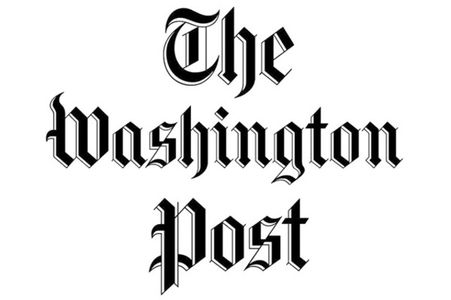
71-year-old Heart Study Gets $38M Grant for Another 6 Years

Framingham Heart Study Awarded $38 Million to Continue Research
![]() Framingham Heart Study Will Examine Aging with New $38M Funding
Framingham Heart Study Will Examine Aging with New $38M Funding
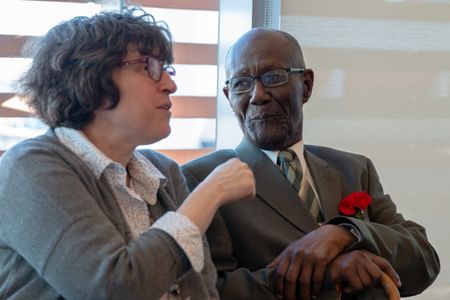
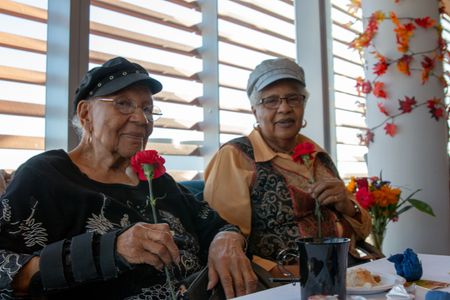

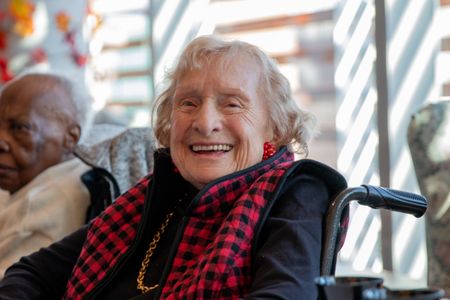
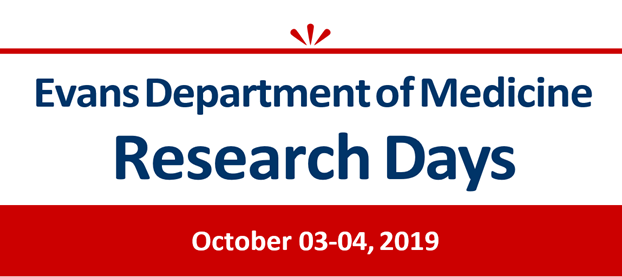
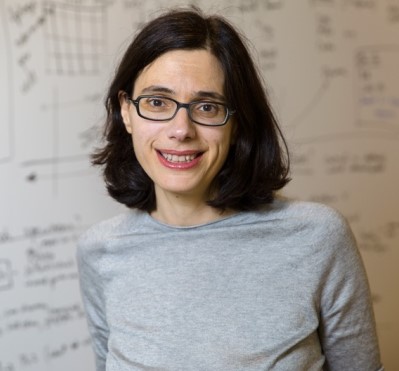 Wilkins Visiting Professor Lecture
Wilkins Visiting Professor Lecture